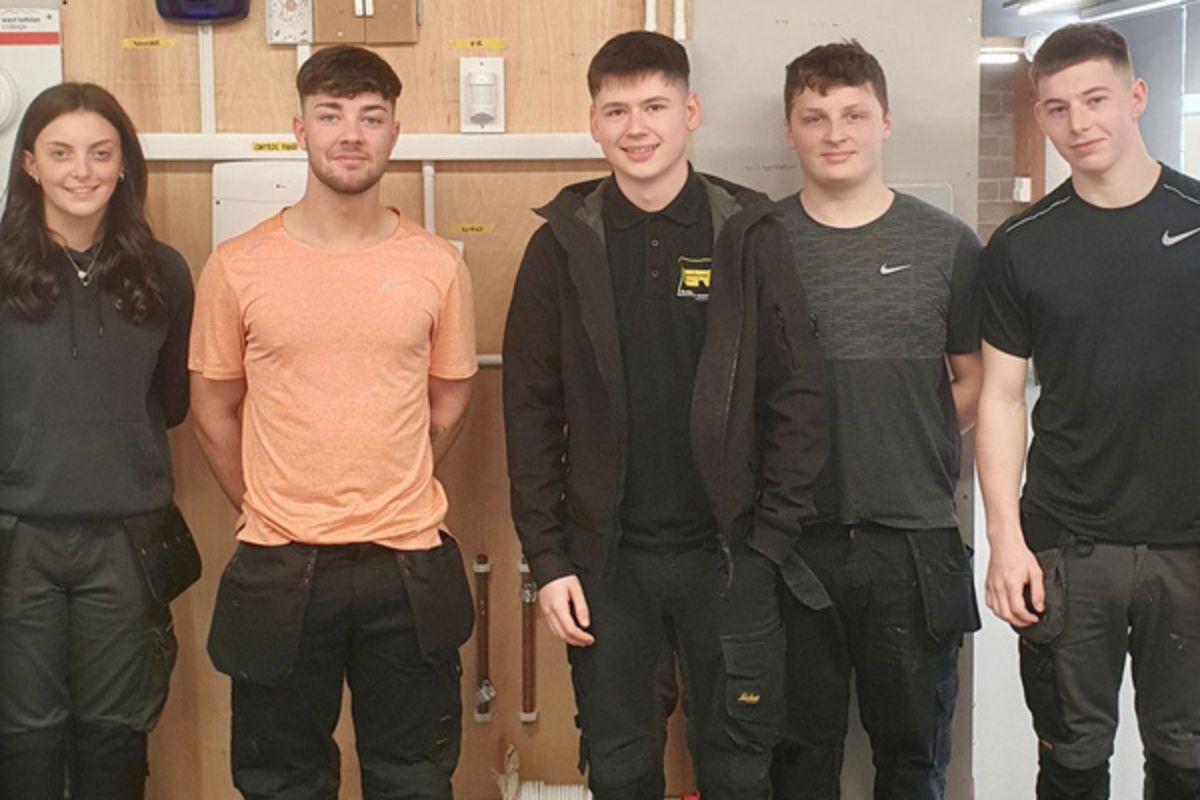Compressed air and vacuum technician

KSBs
Knowledge
K1: Principles of design and operation of compressed air and vacuum generation, filtration, drying, condensate treatment equipment; the different industry application specification requirements, approved Codes of Practice (ACOP), guidelines including British Compressed Air Society (BCAS) best practice guides and fact-sheets Back to Duty
K2: Maintenance requirements and techniques for compressed air and vacuum equipment, for example preventative and predictive maintenance Back to Duty
K3: Fault finding and repair requirements and techniques for compressed air and vacuum equipment, for example diagnostic techniques and testing Back to Duty
K4: System installation, commissioning and decommissioning of compressed air and vacuum equipment, including system components, safe working limits, electrical, mechanical and ventilation requirements, site surveys and leak testing Back to Duty
K5: Piping specifications; the different materials, joints, fixings and consideration of sizing, pressure, lengths and routing requirements Back to Duty
K6: Electrical system principles, for example, AC single/three phase power, DC power, motors, control systems and system connectivity (i4.0). Techniques in the safe use of electrical test equipment and electrical isolation Back to Duty
K7: Calculations, conversions, flow rates and equipment sizing used in compressed air and vacuum activities Back to Duty
K8: Inventory management, including the identification of equipment and parts, stock value, stock management systems and the correct handling of parts and returns process Back to Duty
K9: Safe correct use and storage of equipment and tools for example hand tools, lifting equipment, calibrated tools, power tools, meters, gauges, Carbon monoxide/Carbon dioxide (CO/CO2) monitors and test equipment Back to Duty
K10: Health and Safety and how it must be applied, Control Of Substances Hazardous to Health (COSHH), risk assessments, method statements, permits to work, manual handling, Personal Protective Equipment (PPE), asbestos awareness, working in confined spaces, working at height, slips trips and falls, electric compliance, safety passports, food hygiene, vehicle safety, noise regulation, lone working. Pressure Systems Safety regulations (PSSR) and the Provision of Work Equipment Regulations (PUWER), Lifting operations and lifting equipment regulations (LOLER) Back to Duty
K11: Environmental considerations, including Environmental Protection Act, Waste Electrical and Electronic Equipment Directive (WEEE), fluorinated greenhouse gas (F Gas), hazardous waste regulations and the waste-water Directive (WWD), recycling and waste disposal, energy monitoring, leak detection and equipment data logging to optimize energy performance Back to Duty
K12: Planning techniques, including time management skills, work-flow, job allocation Back to Duty
K13: Documentation requirements, for example service reports, checklists, written schemes of examination and vehicle safety checklist Back to Duty
K14: Communication techniques – verbal and written Back to Duty
K15: Training, mentoring and coaching techniques; how to pass on knowledge, and provide guidance to customer/stakeholder Back to Duty
K16: Professional relationships, including; etiquette, expectations, responsibilities. Equality and diversity considerations Back to Duty
K17: Information Technology (IT) in the workplace, for example hardware devices, software, connectivity protocols, and work management systems Back to Duty
K18: Service Level Agreements, for example employer/employee responsibilities and commercial contracts Back to Duty
Skills
S1: Install compressed air or vacuum equipment, piping, electrical connections and control systems. Back to Duty
S2: Commission compressed air or vacuum equipment and/or components. Back to Duty
S3: Lock off and isolate equipment; electrical and mechanical. Back to Duty
S4: Decommission and disconnect specified equipment or components, for long term shut down or disposal for example. Categorise equipment for reuse, disposal or recycling and when necessary, complete storage measures to prevent deterioration. Back to Duty
S5: Maintain and service compressed air or vacuum equipment or components. Back to Duty
S6: Diagnose; rectify faults and/or repair of compressed air or vacuum equipment, components and systems. Back to Duty
S7: Inspect pressure/vacuum vessels, their safety devices and/or other equipment. Back to Duty
S8: Select and use hand tools, specialist tools and instruments, including test equipment. Check tools and identify and report tool defects where necessary. Store of tools and equipment. Back to Duty
S9: Plan and prepare for work, for example task delegation, work-flow, route planning and time management. Obtain and check parts. Back to Duty
S10: Report and record work activity, for example asset management records, work sheets, checklists, waste environmental records and any legal reporting requirements. Back to Duty
S11: Adhere to heath and safety regulations, legislation and safe working practices; identify risks, hazards and control measure. Back to Duty
S12: Read and interpret technical and safety documentation, for example risk assessments, method statements, permits to work, operation and maintenance manuals and wiring diagrams. Back to Duty
S13: Communicate with stakeholders – internal and/or external, for example customers, colleagues, managers and the general public. Back to Duty
S14: House-keeping, including restoring the work area on completion of the activity, returning any resources and consumables, disposal of waste, re-cycling/re-using where appropriate. Back to Duty
S15: Use IT, for example document creation, communication and information management. Back to Duty
Behaviours
B1: Prioritises Health, safety and environment. Back to Duty
B2: Team player, for example; integrates and communicates with the team, supports other people, considers implications of their own actions on other people and the business whilst working effectively to get the task completed, reliable, punctual, meticulous, trustworthy, honest, determined, perseveres, acts with integrity. Back to Duty
B3: Adaptable, for example, responds to unforeseen circumstances, improvises in environment or time challenged conditions, resilient under pressure. Back to Duty
B4: Takes responsibility for job, for example a desire to see a job through from start to finish and verify that it has been completed to the required standard. Back to Duty
B5: Quality focus, for example attention to detail, accuracy, customer orientated, implements quality and lasting repairs. Back to Duty
B6: Professional – represents employer/themselves well, for example communicates clearly, presentable, passion for product, ambassadorial nature, instils confidence. Back to Duty
B7: Committed to continuous professional development in order to ensure growth in ability and standards of work. Back to Duty












Responses